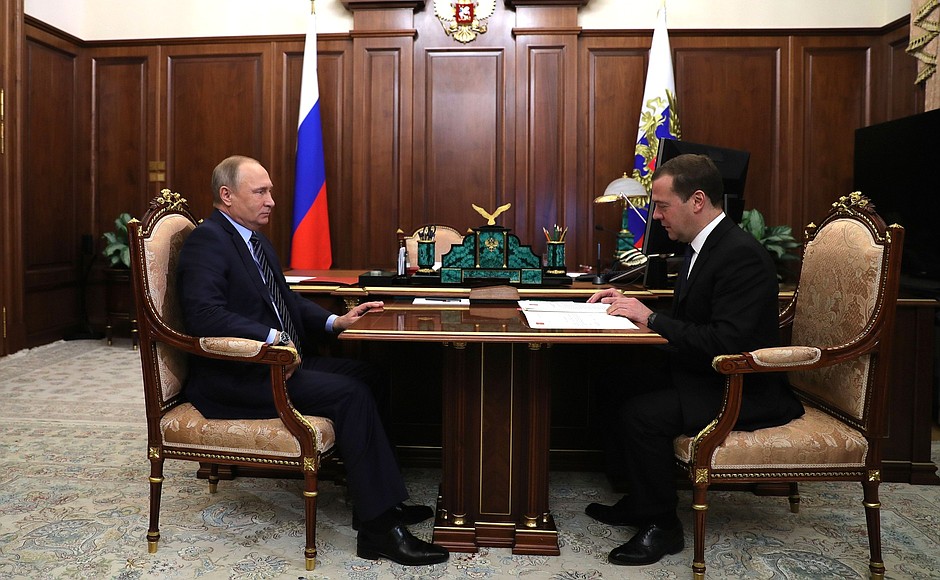
President of Russia Vladimir Putin: Mr Medvedev, quite recently the head of the anti-monopoly service reported to me – and I know he met with you as well – and we agreed to draw up a presidential executive order that will enhance regulatory authority in the sphere of competition. This is a fundamental issue for economic development.
I know that the Government and you personally worked on this document, and now we have an opportunity to complete this work.
Dmitry Medvedev: Absolutely, Mr Putin.
In accordance with your instructions, the Government drafted an executive order on major areas of Government policy on promoting competition. As you rightly observed, this is a fundamental document, which is exactly why it should be issued in the form of a presidential executive order, although it largely deals with economic issues.
“Fundamental” because fostering competition remains a core element of state economic policy, which enables us to look to the future and harmoniously develop all sectors of the Russian economy.
Let me say straight away that apart from general provisions that are within the competence of the anti-monopoly service and the Government, the executive order provides for the endorsement of a separate anti-monopoly plan to promote competition from 2018 to 2020, which envisages support for small and medium-sized business, indispensable for improved competition, and additional anti-monopoly regulatory measures. This reflects our changing understanding of monopolies. Today it is not enough to say that some organisation is a monopoly. It is necessary to establish what elements are part of the infrastructure and are naturally a monopoly and what can be separated and transferred to the competitive market. This makes the operation of monopolies less expensive and reduces their costs, thereby changing the rates they set.
There is also a number of measures and presidential instructions designed to improve regulations. In particular, recently, in order to reduce competition at the regional or municipal and sometimes even federal level, decisions have been taken to create unitary enterprises in competitive sectors. Mind you, not in sectors where this can be accounted for by security or some other special reasons, but precisely in the competitive sector. They create a unitary enterprise, and then everything has to go through it. Of course, these measures essentially hold back the competitiveness of our economy.
This executive order either outlaws such decisions or, if necessary, they should be taken only based on special acts issued by the President or the Government.
This executive order also contains a number of other measures to improve legislation nationwide, which the Government would like you to sign.
Vladimir Putin: With regard to unitary enterprises, you and I are aware that, unfortunately, even some of the functions of the ministries and departments are transferred to unitary enterprises after such enterprises have been created. So we are delegating the functions of federal governance bodies to them as well.
We need to carefully consider this, including during the privatisation process, when the Government will be forming a privatisation plan. This segment needs to be carefully looked at.
Dmitry Medvedev: Will do.
Vladimir Putin: As for the executive order itself, of course, I will sign it right away. I want to thank you for completing such an extensive amount of work. Now, we will need to follow closely the law enforcement practice to see if it works in real life.
Dmitry Medvedev: The Government will take care of it, Mr Putin.
<…>
